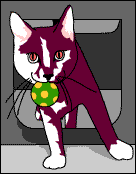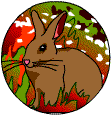VETERINARY NURSING IN THE UK
Created | Updated Mar 13, 2015
AN INTRODUCTION...

 Veterinary nursing is both a very rewarding and stressful job, on the whole, the hours are long and the pay is poor, but what job satisfaction!
Veterinary nursing is both a very rewarding and stressful job, on the whole, the hours are long and the pay is poor, but what job satisfaction!It can be very emotional when you lose a patient you have been looking after, but there is some comfort in knowing that you help make the end as special as it can be for the animal. It involves more than walk the dogs and stroke the cats which is how some people regard it.
Nurses usually work on a rota covering all departments of the hospital, but it is also possible specialise in particular areas too.
IN THE WARDS
All in-patients require constant monitoring and assessment by the nurses, alerting the vets to any change in condition. This means recognising warning signs, relevant to the disease they are in for, which can be very subtle – ie a diabetic getting grumpy can indicate hypoglycaemia. As ward manager you have responsibility to give all medications, put intravenous drips in and take heart rates, temperatures and respiration rates 3 times a day. As well as overseeing feeding and giving updates to owners. You may need to put in nasal feeding tubes and calculate the metabolic requirements of the patient, give enemas, catheterise them, and flush and maintain any drains.
IN THE LABORATORY
Take venous and jugular blood samples in both dogs and cats; and analysing them for liver, kidney, and pancreatic function as well as a haematology profiling, Plus also take skin scrapes and smears, perform urine analysis and microscopy.
IN THE OPERATING THEATRE
As a senior theatre nurse, you have a lot of responsibility such as sterilising all equipment and preparing the theatres for the days operating list. Make sure that all patients have had pre op bloods taken and put in any drips. Discuss the sedation and anaesthetic regime with the vet and then give the drugs at the appropriate time. Monitor the anaesthetic, adjusting levels as required and monitor oxygen saturation levels in the blood as well as heart and pulse rate. Intubate animals (put a breathing tube into the lungs) and ventilate if necessary. You are sometimes required to ‘scrub up’ to assist the surgeon during the operation. You monitor the post op analgesic requirements and general recovery of the patients.ADDITIONAL
Take a x-rays and process either manually or by automatic processor. Apply Plaster of Paris casts, pressure bandages, splints and dressings.Run nursing clinics for dental care, weight checks, post operative or suture removal checks, dressing changes, routine health checks; and puppy parties.
FURTHER TRAINING AND SPECIALISATION
Specialisation can be in nutrition, exotic animals, advanced surgery, advanced medicine, dermatology, behaviour, dentistry and client care to name but a few!
ADVANCED VETERINARY NURSING DIPLOMA (SURGICAL AND MEDICAL)
Qualified Veterinary Nurses now have available a choice of two Diploma’s in Advanced Veterinary Nursing, either Medical or Surgical.
Those who apply to study an advanced diploma will cover all the CORE subjects and then the subjects under their elected diploma.
General Information
Training for the Diploma will be based on experience gained whilst employed as a veterinary nurse in Practice (normally an Approved Training and Assessment Centre under the RCVS Veterinary Nursing Byelaws). Study will be supplemented by compulsory attendance at a prescribed five day residential course and by undertaking a structured tutoring course of a correspondence format, with advisory additional weekends of a practical nature and a ‘refresher’ day. At least one year of the required two years’ Full time experience (or equivalent amount of part-time) must be gained after attending the five day course. It is also strongly recommended that students visit places of excellence, for instance, veterinary universities, referral centres, or hospitals to gain further experience.
Applicants wishing to take the Diploma should appreciate the time and commitment to study that is involved. All administrative arrangements for these courses are handled by the British Veterinary Nursing Association, subject to oversight by the joint RCVS / BVNA Committee.
Course Format
The five day Residential course covers the theory of both core and elective subjects. The Structured Tutoring Course follows on from the Residential week, although a preliminary module is issued beforehand. The format involves the completion of a further eight units, which are submitted to Moderators for assessment.
Diaries and casebooks are complied in the following subjects:- anaesthesia, radiography, intensive care and either surgical nursing or medical nursing, and these are then submitted for the examination. Students study at their own pace with support from their own supervisor (normally a veterinary surgeon in their place of work). The whole course culminates with the RCVS Diploma Examination. Successful students are entitled to use the initials Dip AVN (Surg / Med) after their name.
I WANT TO BE A VETERINARY NURSE. WHAT DO I DO NOW?
ENTRY REQUIREMENTS
Anyone wishing to embark on a career as a Veterinary Nurse should have 5 GCSE's at grade C or above, Scottish standard grades 1-3 or higher grades A-E, including English Language and two passes in a physical or biological science or mathematics. Appropriate passes in examinations of a comparable or higher standard may be accepted in lieu of the usual requirements at the discretion of the RCVS VN Review Officer.
Length of time of training
A minimum of 24 months will be the average period spent training (3,290 hours).
Once you have been accepted onto the S/NVQ VN Scheme, your training will last approximately 2 years. Two examinations must be passed before qualification as a Veterinary Nurse is granted. These are the Part 1 examination and portfolio, which may be taken after four months (prior to the closing date of the examination) as an enrolled student, and the Part 2 examination and portfolio, which is taken at the end of the 2-year training period.
Once you have successfully passed the Part 1 and 2 examinations and have the full 2 years signed on your record of employment card, you can apply to the Royal College of Veterinary Surgeons for a Certificate of Veterinary Nursing and be put on the list of Veterinary Nurses held by the RCVS and use the letters VN after your name.
For more information visit the Britsh Veterinary Nursing Association Website B.V.N.A.
PRE VETERINARY NURSING COURSE
The Pre-Veterinary Nursing Course is designed to prepare students for a career in animal care or Veterinary Nursing, based within a veterinary practice. Students who successfully complete the course, the examination and case logbook will be able to register as a Student Veterinary Nurse on the S/NVQ Veterinary Nursing Course (if in an Approved Training and Assessment Centre) and progress to a career in Veterinary Nursing.
If at the end of the course the student is unsuccessful, or they decide that Veterinary Nursing is not to be the career for them, they will still have gained valuable training, which will allow progression to a job in other sectors of the animal care industry, such as veterinary reception, pet stores, boarding kennels and animal charities.
This course would suit students from the following categories:
School leavers with no or insufficient GCSE's to register as a Student Veterinary Nurse
School leavers with sufficient GCSE requirements but under 17 years of age
School leavers unsure of their chosen career
Non-qualified staff
Mature students who wish to enter the Veterinary Nursing profession, but who do not have the necessary GCSE's
Course Contents
The Pre-Veterinary Nursing Course covers English, mathematics, biological science, general husbandry, welfare and care of a wide range of small animals encountered within a veterinary practice. It gives the student the information required to play a valuable support role to qualified Veterinary staff and to assist owners in the correct management of their companion animals. Further to this, the student will learn basic practice reception skills, handling of finances and retailing of products in order to ensure they have a broad educational background, which is recognised by the Royal College of Veterinary Surgeons as direct entry onto the S/NVQ Veterinary Nursing Course.
Students
Students must enrol with the BVNA immaterial to which course of study they choose, i.e. Day release, block release or on their own.
There is no minimum academic entry requirement for this course, but each student must be in either:
Full time (35 hours or more per week) employment in a Veterinary Practice (although not necessarily an RCVS Approved Training and Assessment Centre). Students must be enrolled for 9 months prior to the date of the examination.
Or Part time (20 hours or more per week) employment in a Veterinary Practice (although not necessarily an RCVS Approved Training and Assessment Centre). Students must be enrolled for 18 months prior to the date of the examination.
Students should be working in ALL areas of the practice (reception, consulting rooms, operating theatre and kennels) in order to gain the necessary work experience. They should be dealing with a majority of small animals if employed in a mixed practice.
You can apply to back date your enrolment a maximum of three months prior to the receipt of the application, provided you have been in continuous full time or part time employment in your current veterinary practice.
